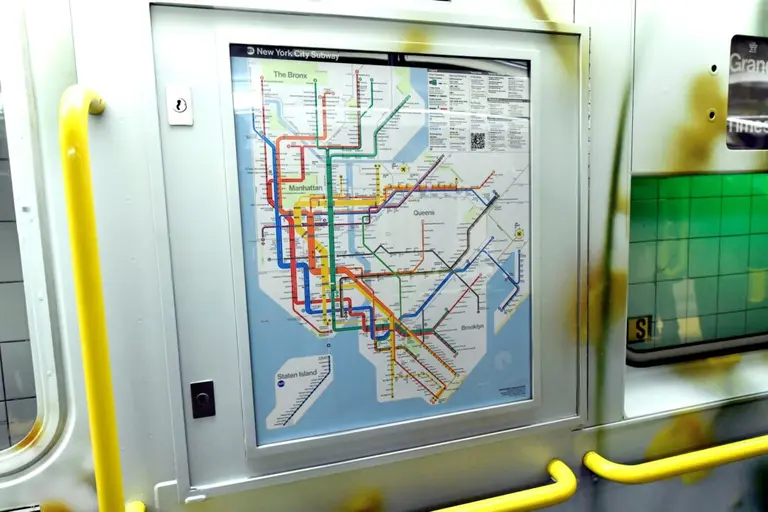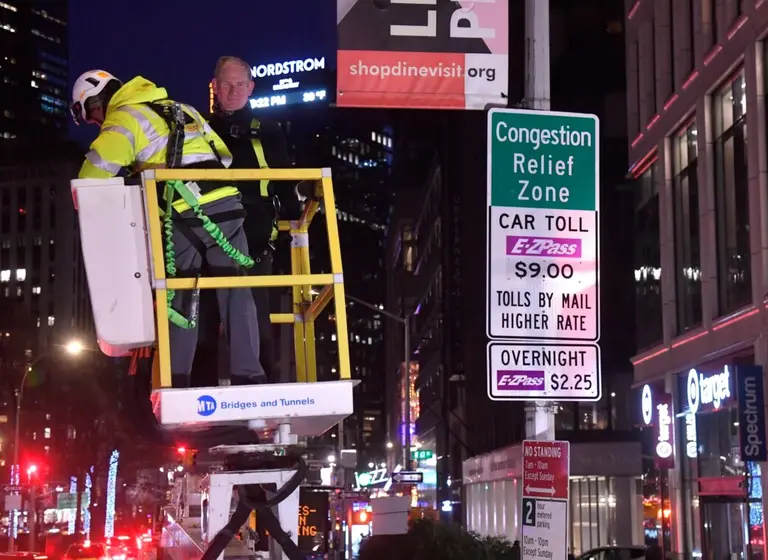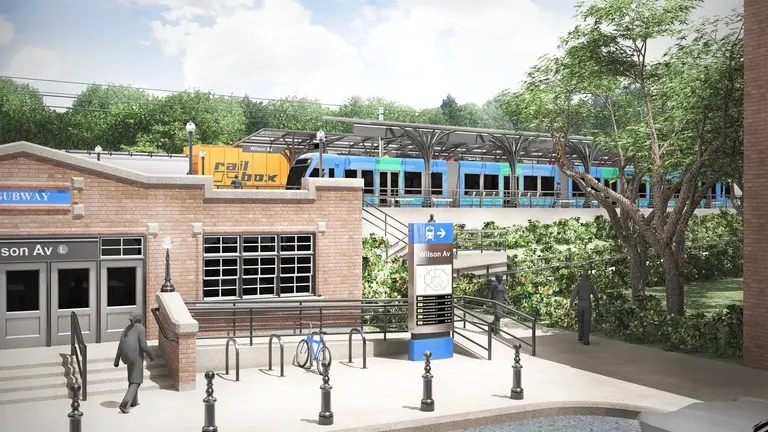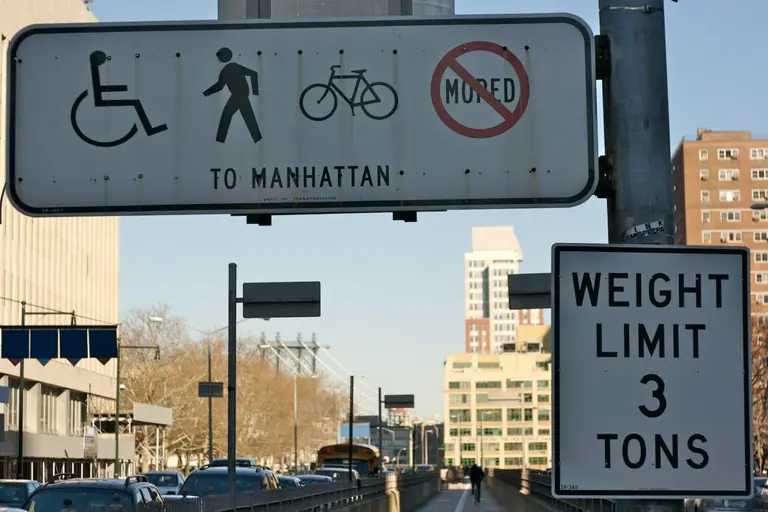MTA considers raising subway speed limits to reduce delays
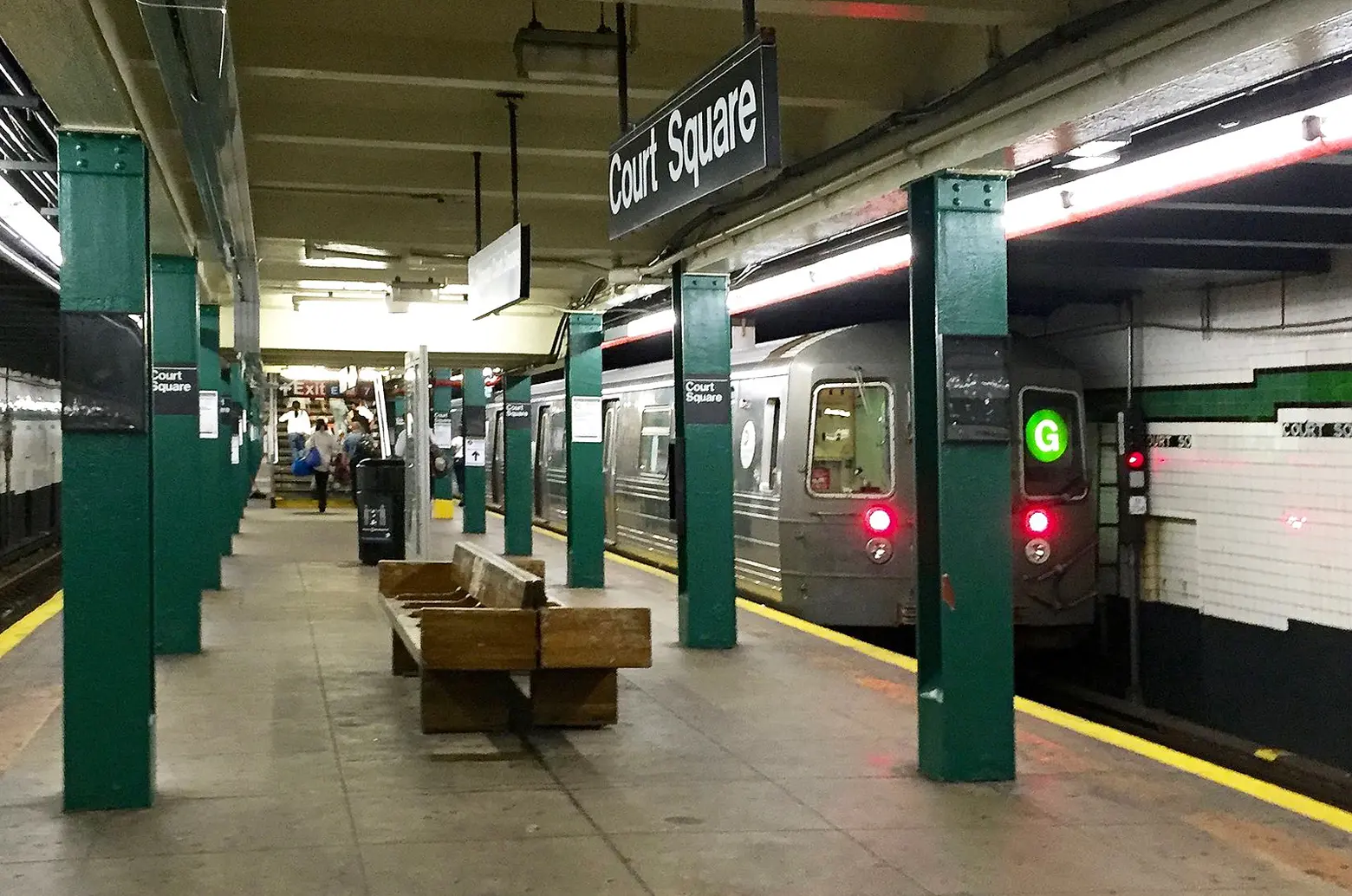
Image: Wikipedia.
New Yorkers love to complain about the slowness of the subway, but what sometimes seems like a snail’s pace is as likely due to speed limits imposed to keep the system safe as it is to crumbling infrastructure and antiquated signals, according to new info released by the MTA. The New York Post reports that after a series of tragic accidents in the 1990s and 2000s, speed limits were lowered throughout the system. Now, a new initiative is investigating ways of keeping subways safe as well as picking up speed.
The lower speed limits–from 50-55 mph to 40–on straightaways went into effect after a fatal 1995 crash in which a J train rear-ended an M train on the Williamsburg Bridge. The collision killed the J train operator and injured over 50 passengers. Signal systems were also changed in order to automatically trip a speeding train’s brakes whether or not there was another train ahead. Also, trains passing track workers must now slow down more than they did in the past as a result of two 2007 fatal incidents involving workers. And transit union officials have said they would fight efforts to speed up trains when workers are nearby.
Andy Byford, the new subway system president, is looking into the possibility of having the speed limit raised without compromising safety. A working group of agency engineers and service planners are studying the signal-timer system with an eye on safety rules that have slowed down service. According to a 2014 study obtained by the Village Voice, signal modification has resulted in an average loss of 2,851 total passenger hours per weekday.
Byford said, “The changes made to the signal system [in response to the 1995 crash] have undoubtedly had an impact on subway capacity. I met with my team…and we are studying the impact and what was done to see if adjustments can be made while still maintaining the safety benefit.”
Among the recent MTA Genius Transit Challenge winners were suggestions for innovations like onboard sensors and cameras for train positioning and automated communications and control systems infrastructure in subway tunnels–all of which could assure better success in the areas of safety as well as speed.
[Via NYPost]
RELATED:
- MTA $1M Genius Transit Challenge winners suggest faster trains and robot workers to fix subway hell
- Governor Cuomo and the MTA announce a competition to fix the NYC subway system
- Cuomo declares a ‘state of emergency’ for the NYC subway, gives MTA $1B for repairs
- Overcrowding and ‘dwell time’ are why NYC’s subway system is failing


